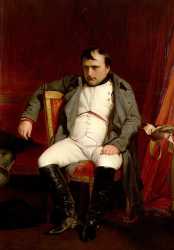>>50554288To be fair Alexander had a few things going for him. First he had inherited an army that had been on campaign for multiple years both in Thrake and Thessaly. He inherited a hardened officer corp as well as men who had been fighting for years. In Classical Greek history the mercenary army of Greeks and Thrakians under the command of Kyros the Younger had found itself without an employer in the heartland of the Persian empire. Suffice to say these men performed acts that were unheard off for Greek militia armies such as a checkered board formation in the mountains of Cappadocia and the first time we hear of the Ouragos, or the rear-field leaders, officers who become standard in the Hellenestic era. Likewise we hear of the desperate men of the Athenian expedition to Sicily marching in squares given their desperate circumstances. It pays to mention that as citizen militias most Greek armies weren't well organized and indeed Thukydides tells us that seeing the Spartans marching in step was a sight to behold. The Makedonian army was possibly the most professional fighting force in the world at the time on top of the reforms started by Philip such as incorportating the upper Makedonians nobility into proper Makedonian nobility, giving him access to a larger pool of cavalry and reforming the Makedonian levy from being mostly made up of light armed infantry, which like the Thrakians and Thessalians they had a core of calvarly that led a motely crew of light armed troops these rural regions lacked heavy infantry, to proper heavy infantry, first as "bootleg" hoplites armed with longer spears, possibly similarly to certain depiction of Thrakian and Illyrian peltast, but later into a serious proper fighting force.
Second he inherit most of the Balkans under his command. This included his resource rich homeland of Makedonia, the rich Thessaly and Thrake with a large manpower pool, and most of the Southern Greek states.

